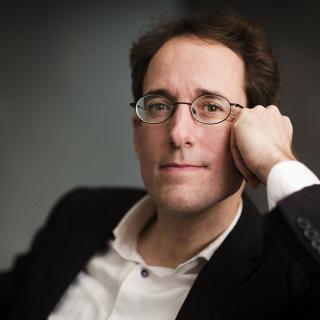Acclaimed conductor Pablo González and pianist Yeol Eum Son, finalist of the Tchaikovsky Competition, present a concert programme with music composed for cultured entertainment and tunes from the depths of the Slavic soul.
Polish composer Karol Szymanowski wanted to tour the concert stages as the soloist of his own Sinfonia Concertante. He described the piece as being easily approachable and the solo part as being suitable for his pianist skills. After appearing in Copenhagen in 1933, remarks by a Danish critic made Szymanowski reply to his friend: “Oh my God, is it really that serious now? I just wanted to compose a little entertainment music for a wider audience, that’s all!” The cheerful Sinfonia Concertante resolutely avoids complex experiences and great drama, unlike Pyotr Tchaikovsky in his Sixth Symphony. The glowing pathos of that piece has long fuelled speculation concerning the autobiographical nature of the work, which was especially close to the composer himself: “I love it as I have never loved any other of my musical offspring.”
Pablo González
Since studying conducting in London and winning the Donatella Flick and Cadaqués International Conducting competitions in 2000 and 2006 respectively, Spanish-born Pablo González (b. 1975) has been a regular guest on both sides of the Atlantic. He was Music Director of the Orquestra Simfònica de Barcelona 2010–2015 and with it recorded three highly-acclaimed volumes of orchestral works by Enrique Granados (Naxos). He is at present Principal Conductor of the Spanish Radio and Television Symphony Orchestra (RTVE). Pablo González is also particularly passionate about German and Russian works of the Romantic era.
Yeol Eum Son
Winner of the Van Cliburn competition in 2009 and the Tchaikovsky in 2011, South Korean Yeol Eum Son this year makes her debut with the HPO, the Czech, Rotterdam and Israel Philharmonic Orchestras, the Singapore Symphony and at the Budapest Festival. She began her recording career at the age of 18, playing Chopin Nocturnes for Universal Music, and in the past few years has recorded works by Schumann and Mozart for Onyx. In addition to writing the texts for her CD booklets, she regularly contributes to the largest-circulation South Korean daily and, since 2018, has been Artistic Director of the Music in PyeongChang Festival.
Karol Szymanowski: Symphony No. 4, Op. 60
Karol Szymanowski (1882—1937) was Polish though born in what is now Ukraine. His Symphony No. 4 of 1932 is, despite its name, almost a pure piano concerto, but then again the absence of brilliant keyboard virtuosity, coupled with exceptionally colourful orchestration point to a symphony with a pronounced solo element. Calling it a Sinfonia Concertante is thus a terminological compromise. Szymanowski wanted to compose a piano concerto but, not being a professional pianist, was not sure he could rise to the challenge. “Please make it an absolute secret that it is a concerto – you may say it is the 'Fourth Symphony',” he wrote to a friend Zofia Kochańska. He dedicated the work to the great pianist Arthur Rubinstein, but was himself the soloist at the premiere with the Poznań City Orchestra under Grzegorz Fitelberg.
The Sinfonia Concertante is in the traditional three movements. The first begins with a nostalgic melody he had invented nine years earlier. The second movement is in the nature of a nocturne, an almost impressionist mood piece. The audience at the premiere demanded an immediate encore of the finale with its catchy, folk-inspired dance.
Moderato. Tempo comodo
Andante molto sostenuto
Allegro non troppo, ma agitato ed ansioso
Pyotr Tchaikovsky: Symphony No. 6 “Pathétique”
One of the great questions in the history of music is: did Pyotr Tchaikovsky (1840–1893) have a premonition of his impending death when he wrote his Symphony No. 6? Did he mean it as a suicide note? His homosexuality was taboo back then in Russia, and could have serious consequences if detected; and his attempt at conventional marriage had failed abysmally. He had fallen in love with his nephew, a fact that may have leaked out and prompted malice in certain circles.
The word “Pathétique” attached to the symphony was invented by Tchaikovsky’s brother Modest and is wrongly interpreted as meaning ‘pathetic’. The Russian, ‘pateticheskaya’ meaning ‘passionate’ or ‘emotional’ was mistranslated into French as ‘pathétique’ meaning ‘solemn’ or ‘emotive’.
The first of the four movements begins with a slow introduction from which all the symphony’s themes are derived. Some claim to hear in them a battle between passion and love, justice and injustice, fate and honest emotions. Tchaikovsky died in dubious circumstances – cholera was mentioned – only nine days after the symphony’s premiere.
Adagio - Allegro non troppo
Allegro con grazia
Allegro molto vivace
Finale: Adagio lamentoso

